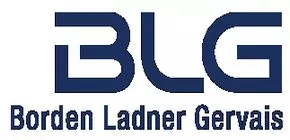Often in litigation, lawyers and their clients need to consult with subject-matter experts who are not retained to testify at trial.
There are many benefits in allowing a non-testifying expert consultant to assist litigators. They can help the legal team choose and vet a testifying expert, review the testifying expert's work, assist in analysing the strengths and weaknesses of their case and even become a "backup" expert if the testifying expert becomes unable to participate in the trial. But at what point does a non-testifying expert consultant's work product become discoverable? What if the lawyer does not actually hire the consultant and the client brings in the consultant prior to hiring counsel? Does litigation privilege extend to shield the work product of those non-testifying expert consultants?
What You Need To Know
- There is wider protection for non-testifying expert consultants in the U.S. than there is Ontario (and even Canada more generally) under the work product doctrine and the attorney-client privilege.
- For the U.S. protections to apply, the lawyer - not the client - must hire the non-testifying expert consultant.
- In Canada, litigation privilege may extend to non-testifying expert consultants when they are hired to provide information, advice or evidence for the litigation. However, depending on who hired the expert and the degree of consultation at play, litigation privilege may not cover such consultations. Lawyers and their clients should tread carefully.
U.S. protections of non-testifying expert consultants' work and advice
In the United States, non-testifying expert consultants are not subject to the same disclosure obligations applicable to other testifying experts. This means that they are not required to prepare reports or disclose their opinions and can be very helpful to counsel by providing an "off-the-record" analysis.
The first protection afforded to these non-testifying expert consultants retained in anticipation of litigation in the U.S. is the work product doctrine. Communications with a non-testifying expert consultant are typically protected by this doctrine because such communications are usually in anticipation of litigation. This doctrine exists in many jurisdictions across the U.S. and shields these experts' thoughts and opinions. The doctrine will only be set aside in "extraordinary circumstances" that make it impractical for the seeking party to discover facts or opinions on the same subject by other means. While a non-testifying expert consultant's work product is generally not discoverable, the legal community is split across U.S. jurisdictions as to whether their identity should be disclosed.
The second protection that U.S. courts have afforded these experts is through the attorney-client privilege shield. Absent any waiver, if the lawyer retains an expert purely for consultation, the attorney-client privilege will apply to communications made by the client or the attorney to the expert in order for the expert to properly advise counsel. It is important to note, however, that for the attorney-client privilege to extend to communications with non-testifying expert consultants, the lawyer must have hired the non-testifying expert. As such, in cases where the client has sought outside expertise relating to potential litigation to investigate a claim prior to hiring an attorney, it is unlikely that the expert's advice would be protected.
Canadian experts and litigation privilege
Litigation privilege protects documents and communications
primarily created to prepare for existing or anticipated
litigation. This creates a zone of privacy in the litigation that
shields parties and allows counsel to work with and consult third
parties such as experts, while they write and edit draft reports.
However, this privilege "is neither absolute in scope nor
permanent in duration."
In Canada, unlike in the U.S., courts have yet to provide certainty
around whether litigation privilege extends to protect
consultations with non-retained experts from disclosure. However,
the ball has started rolling in Ontario. In Westerhof v Gee
(Estate), 2015 ONCA 206, the Ontario Court of Appeal
distinguished between "litigation experts,"
"participant experts" and "non-party
experts."
As described by the Ontario Court of Appeal:
- Litigation Experts are witnesses retained by a party to the proceeding, and who the party intends to call as an expert at trial. They must comply with disclosure rules, which include filing an expert report or fulfilling other requirements applicable to testifying experts (Rule 53.03 of the Rules of Civil Procedure).
- Participant Experts are witnesses whose evidence is derived from their observations or involvement in the underlying facts. For instance, treating doctors who are permitted to testify about opinions that arise directly from the treatment of their patient.
- Non-Party Experts are those hired by a non-party, such as accident benefits insurers. Non party-experts and participant experts do not have to comply with Rule 53.03 to give expert evidence at trial, so long as their opinion is based on participating in the events at issue, and not done for litigation purposes. The Court relied on public policy reasons in stating that requiring participant experts and non-party experts to comply with Rule 53.03 would only add to the cost of litigation.
Non-testifying expert consultants will not always fall under one of these categories, since participating experts and non-party experts may still testify, but without the added burden of disclosure requirements. In Simons v Canada (Attorney General), 2018 ONSC 3741, the Ontario Superior Court briefly addressed the issue of consultations between counsel and experts, noting that litigation privilege will cover communications between a lawyer and a consultant, investigator, or expert hired to provide information, advice or evidence for the litigation. Based on this comment, it is therefore possible that communications with non-testifying expert consultants will fall under the umbrella of litigation privilege. The Ontario courts, and Canada more broadly, need to provide further clarity on the types of consultants and degree of consultation that would be protected based on this statement, as the analysis will be fact-driven and highly contextual depending on who hired the consultant.
Takeaways
Extending and expanding different privilege protections to non-testifying expert consultants is invaluable to the legal profession. It would allow lawyers and their clients to evaluate their cases in preparation for litigation, without fearing that the opinions they receive from these experts may later be used against their case.
Litigation privilege seems to be the most useful tool in a Canadian litigator's toolbox when communicating with non-testifying expert consultants. However, lawyers and their clients still need to exercise caution. The degree of consultation and the manner in which the consultant is characterized may lift the veil of litigation privilege.
The possibility of hiring both non-testifying and testifying experts is crucial, as they each play a distinct role in maximizing the likelihood of a favourable outcome at trial. The legal landscape in Canada would be well served by additional clarity in this space. Courts could look to the U.S. work product doctrine and attorney-client privilege for inspiration in developing this area of the law.
The content of this article is intended to provide a general guide to the subject matter. Specialist advice should be sought about your specific circumstances.

